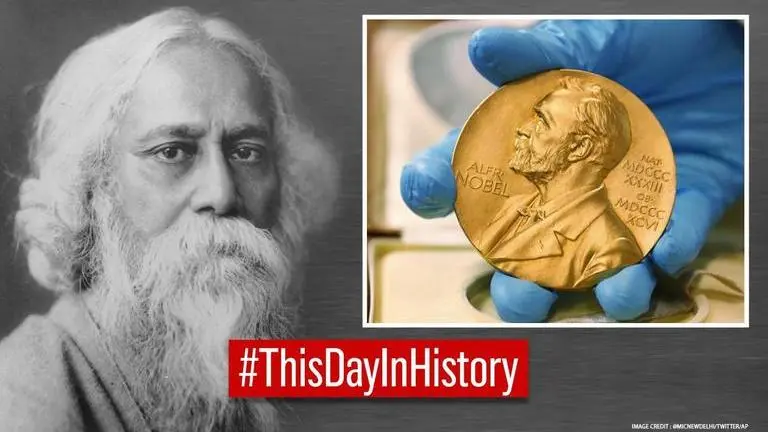Updated 13 November 2020 at 18:30 IST
Rabindranath Tagore became first non-European to win Nobel Prize in Literature in 1913
Rabindranath Tagore became first non-European to win Nobel Prize in Literature on this day in 1913 for his work 'Gitanjali', as recalled by the Committee.
- India News
- 2 min read

Rabindranath Tagore became first non-European to win Nobel Prize in Literature on this day in 1913, as recalled by the Committee. Tagore continues to be a towering figure in the millennium-old literature of Bengal and he was awarded the Nobel Prize in Literature on November 13, 1913, “because of his profoundly sensitive, fresh and beautiful verse, by which, with consummate skill, he has made his poetic thought, expressed in his own English words, a part of the literature of the West.’
A selection of his poetry, ‘Gitanjali’ fetched him one of the world’s most prestigious awards after it was published in London in English translation in March 1913. Moreover, as the organisation, the book was printed nearly ten times by the time the award was announced in November.
In the introduction of the same book, WB Yeats wrote, “We write long books where no page perhaps has any quality to make writing a pleasure, being confident in some general design, just as we fight and make money and fill our heads with politics - all dull things in the doing - while Mr Tagore, like the Indian civilization itself, has been content to discover the soul and surrender himself to its spontaneity.”
Advertisement
Rabindranath Tagore’s life
The poet, novelist, essayist, philosopher and musician from Bengal, Rabindranath Tagore was born on May 7, 1861, to Debendranath Tagore and Sarada Devi in Calcutta. While Tagore’s mother had died only when he was a child, his father was always on the roads. Therefore, he was raised mainly by servants. Rabindranath Tagore’s eldest brother, Dwijendranath was a philosopher and poet. His other brothers Satyendranath and Jyotirindranath were first Indian in Civil Service and a musician, composer respectively. Meanwhile, Swarnakumari, his sister was a novelist.
Advertisement
Eventually, in 1878, Tagore enrolled himself at a public school in England because his father aimed at making him a barrister. Rabindranath Tagore read law at University College, London, before opting out and studying independently the works of Shakespeare among other works. He finally returned to Bengal in 1880 and began publishing his poems without any degree. He released one of his best works ‘Manasi’ in 1890 and gradually his work ‘Gitanjali’ received global recognition and even a Nobel Prize before hi died in 1941 at the age of eighty.
Published By : Aanchal Nigam
Published On: 13 November 2020 at 18:31 IST
